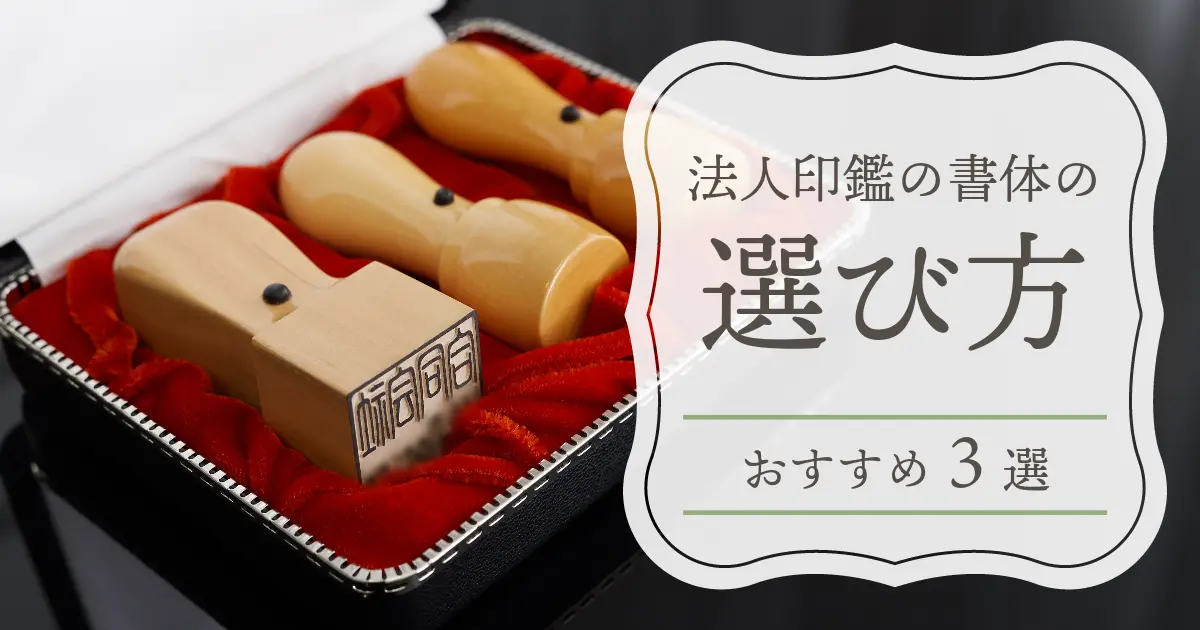If you are a sole proprietor or freelancer, you will be acting as the representative of the company. There are many occasions when you will need to stamp various documents, such as contracts and non-disclosure agreements.
This article explains what self-employed people need to know about HANKO when running their business. By reading this article, you will understand what kind of HANKO are necessary for self-employed people and freelancers, and you will be able to create HANKO that you do not need, as well as avoid having to worry about stamping. If you are planning to run a self-employed business or are already running one, please use this article as a reference to acquire the correct knowledge about HANKO and use them in your work.
What is the representative seal?
A representative seal is a HANKO used by a company representative to express the company's intentions to the outside world. The representative seal is a registered seal registered with the Legal Affairs Bureau and is used to seal important contracts and official documents. It is also sometimes called a company registered seal.
The face of a representative seal often has the company name engraved on the outer circle and the job title on the inner circle. The representative seal is the most important HANKO that represents the company, so it must be carefully managed to prevent it from being lost or stolen.
The representative seal can be used in the following situations.
- Business contracts between companies
Representative seals are used to stamp contracts and important documents. The representative seal is engraved with the company name and the name of the person in charge. By affixing the representative's seal, the other party can confirm that the contract has been officially signed.
By affixing your representative's seal, you can give your business partners a sense of security and smoothly build relationships of trust. A representative seal is an essential part of your business, as it shows that your company is seriously working on a project.
- At the time of company establishment
When establishing a company, it must be registered with the Legal Affairs Bureau. At that time, it is common to register HANKO at the same time. The representative seal used for this HANKO registration will be the registered seal.
- Proof of company existence
In situations where proof of a company's existence is required, such as when concluding a contract with a new business partner, applying to a government agency, or communicating with a public institution, a representative's seal may be required. You may also be required to attach a HANKO certificate.
- Official documents outside the company
The representative seal may be affixed to official documents sent outside the company, such as partnership agreements and contract renewal forms. By stamping the document with the representative's seal, the company's intentions and decisions are formally expressed, and the company's representative is able to demonstrate that he or she is responsible for the document.
Does a sole proprietor need a representative seal?
A sole proprietor is not a corporation, so there is no representative seal (corporate official seal). The representative seal refers to the HANKO registered during the HANKO registration process when registering the corporation. Since a sole proprietor does not register as a corporation, there is no need to register a corporate official HANKO. Therefore, there is no representative seal.
If you are a sole proprietor and want a HANKO with your trade name and name on it, or if you run a private shop and want to prove that you represent the business, it is a good idea to create a round seal for your business in addition to your personal one.
Also, if you are considering incorporating in the future, you can prepare a business HANKO to use as the representative seal, so that you can consistently use the same HANKO even after incorporating.
Difference between registered seals for individuals and corporations
The major difference is that a personal registered seal is a HANKO used by an individual, and a corporate registered seal (representative seal) is a HANKO used by a company. Another difference is that personal seals are registered at government offices, while representative seals are registered at the Legal Affairs Bureau.
Recommended HANKO for sole proprietors and freelancers
There are various types of HANKO. Below are some typical types of HANKO.
registered seal
A HANKO registered at a city hall, etc. is called a registered seal. A HANKO is used by individuals to express their intentions and prove their identity. For example, stamp important contracts and documents such as real estate transactions, car registrations, and contracts with financial institutions. By affixing a registered seal, you can prove that the document was created by your will and that you are responsible for it.
representative seal
The representative seal is the HANKO used by the company, and is the HANKO that is registered with the Legal Affairs Bureau as a registered seal when the company is established. The company representative's name, title, and company name are engraved on it, making it easy to see at a glance which position within the company the stamp was placed on. Representative seals are used for business contracts between companies, exchange of important documents, company establishment procedures, etc. A corporate HANKO certificate can be issued for registered HANKO .
circle mark
This is a HANKO that is affixed to documents proving responsibility as a representative. Unlike corporations, sole proprietorships do not have a representative seal, so they must affix a circle seal. There are various types of round seals. It would be a good idea to create a HANKO of your choice, such as one with just the individual's name, one with only the trade name, or one with the trade name and representative's name engraved on it. You can create your own original round stamps at Hanko Shop 21.
bank seal
Bank seals are HANKO that are mainly used by corporations and individuals for transactions with banks and financial institutions. Bank seals are used in transactions with financial institutions, such as opening accounts, transferring money, issuing and receiving checks, and contracting for loans. A bank seal is registered by notifying it to a financial institution when opening an account, and after registration, the HANKO is used to conduct bank transactions.
Bank seals are often used to verify identity, so the name of the person making the transaction is generally engraved on the seal. It is best to create and register the HANKO you use as a bank seal separately from the personal HANKO you usually use.
This is to ensure that business banking transactions will not be disrupted if your personal HANKO is lost.
What is Kakuin (company seal)?
A square seal is a HANKO with the company name or shop name engraved on it. Although they are often used by corporations, individuals may also create Kakuin.
A square seal is generally used as a seal and is stamped on internal documents, business-related documents, invoices, receipts, etc. Although it has no legal effect, it is used to indicate the identity of a company or organization.
If you are a sole proprietor, there is no problem even if you do not make a square seal. However, you can raise the status of your documents and make them look better by stamping them with your trade name or a square seal with your full name engraved on them.
electronic HANKO
To put it simply, an electronic HANKO is an image of the seal impression (the HANKO design) and is a JPG or PNG file. By placing an image in a file such as Word, Excel, or PDF, it will look like a stamp on the document.
You can also upload and use the electronic HANKO image file in the electronic contract service that concludes, manages, and stores contracts. You can create an image of a HANKO within the electronic contract service, but the design of the HANKO is often lacking, so preparing a separate electronic HANKO will give a better impression to business partners.
Address stamp (rubber stamp)
An address stamp is a HANKO with your name, address, and contact information printed on it. It is commonly stamped on letters, envelopes, brochures, business cards, etc., and is used to easily convey contact information. Even if you are a sole proprietor, if you frequently mail documents to multiple clients, having an address stamp will allow you to send documents more efficiently.
summary
In this article, we have explained what sole proprietorships need to know about HANKO. A representative seal is a HANKO used by a company representative to publicly express the company's intentions, and refers to a HANKO registered with the Legal Affairs Bureau. Therefore , a sole proprietor who is not registered as a corporation does not have a representative seal, but you can prove that you are the representative of the business by creating a circle seal for business use, separate from the personal seal.
In addition, by making a HANKO such as a shop name seal or a square seal, you will increase your credibility and recognition in the business scene, and it will be easier to gain the trust of your customers.
If you want to create various types of HANKO, please use Hanko Shop 21. At Hanko Shop 21 , you can create your favorite HANKO using a variety of HANKO materials. Another point is that you can complete the creation process online without having to go to a store.
 日本語
日本語 English
English 简体中文
简体中文 繁體中文
繁體中文 한국어
한국어 ไทย
ไทย Tiếng Việt
Tiếng Việt Indonesia
Indonesia Français
Français Español
Español Português
Português
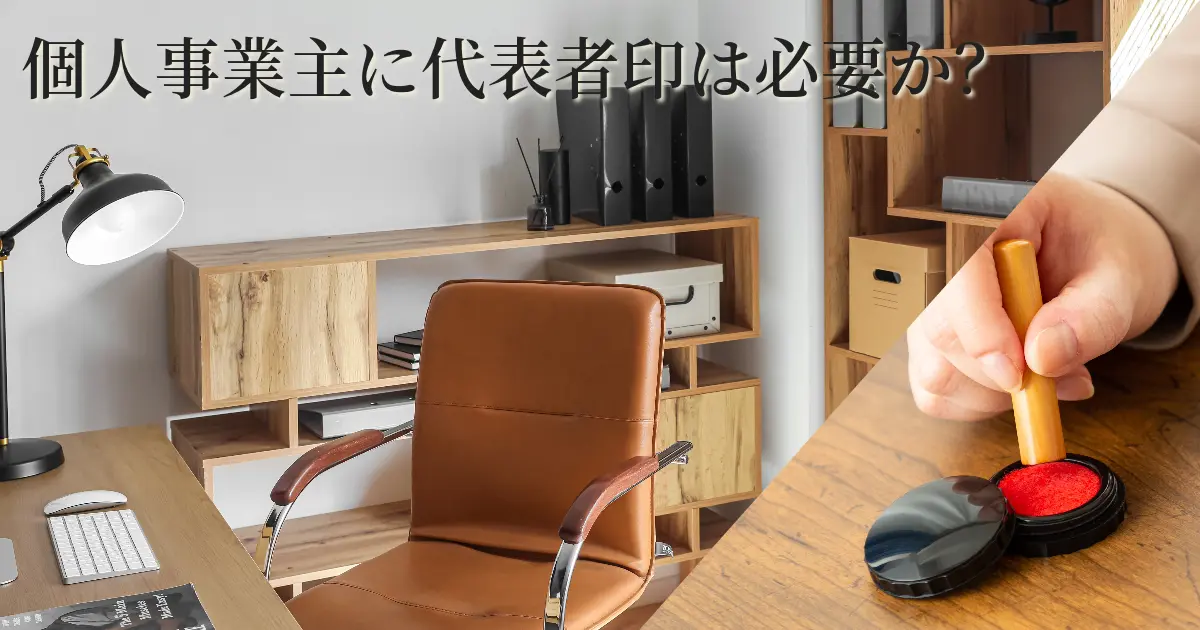
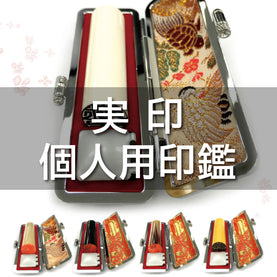 registered seal
registered seal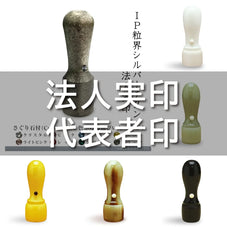 Corporate seal
Corporate seal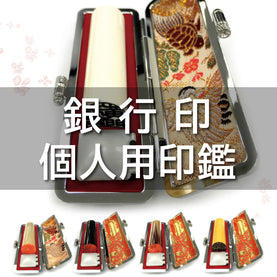 bank seal
bank seal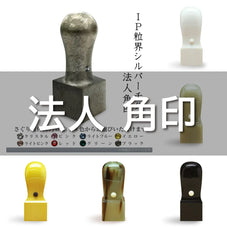 square seal
square seal Square mark SC2727
Square mark SC2727 Kakuin SC3030
Kakuin SC3030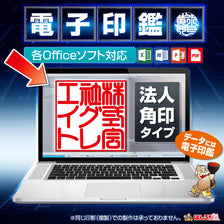 Corporate square seal type
Corporate square seal type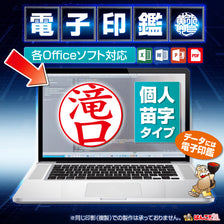 Personal seal type
Personal seal type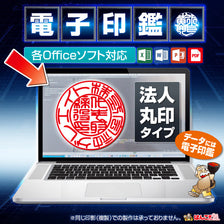 Corporate circle stamp type
Corporate circle stamp type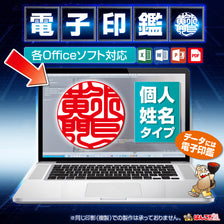 Personal name type
Personal name type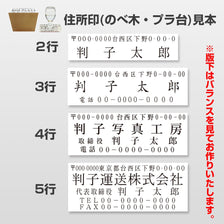 address stamp
address stamp Address stamp SC2260
Address stamp SC2260 Address stamp SC2770
Address stamp SC2770